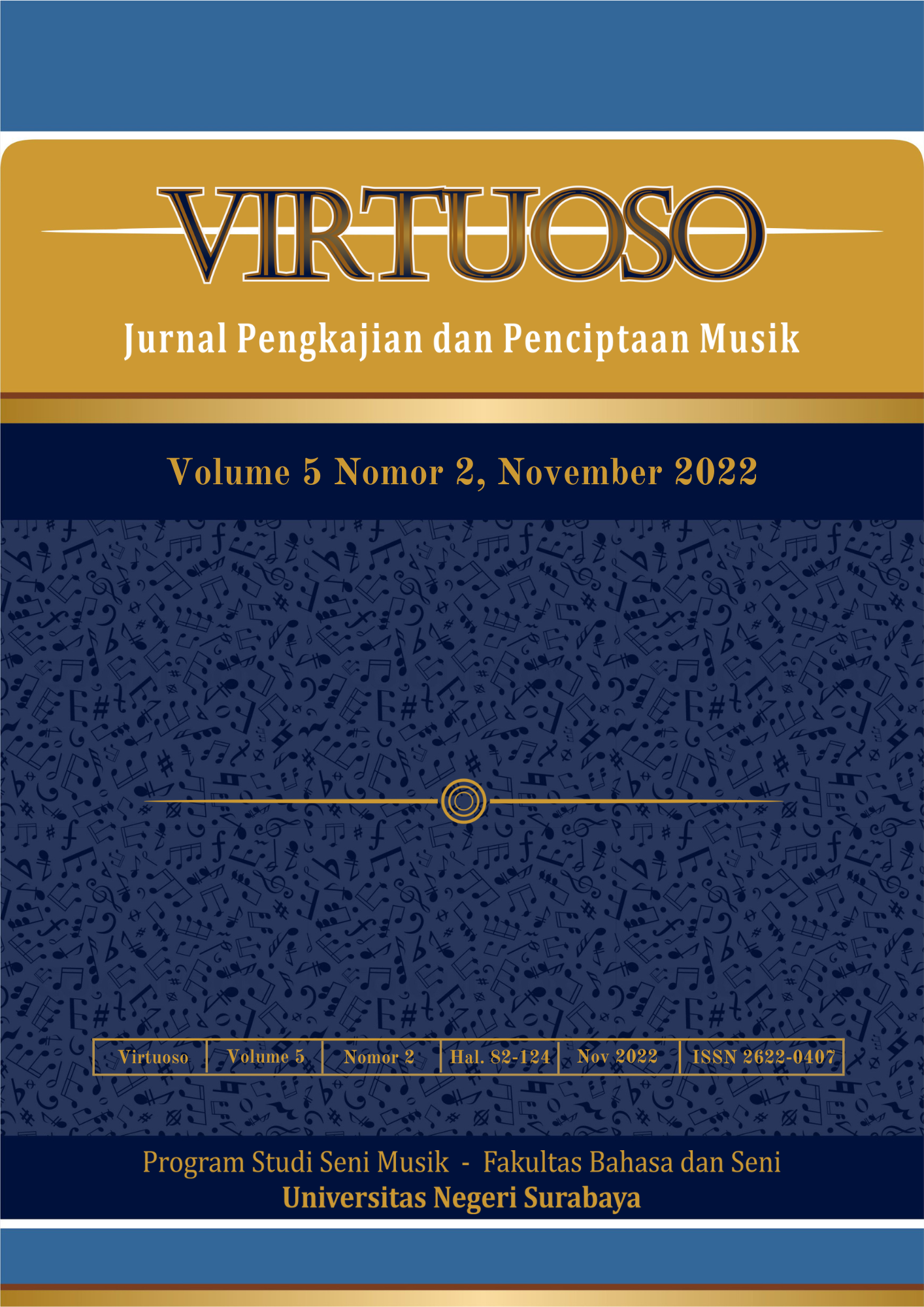Pembelajaran Teori Musik Secara Daring Menggunakan Model Pembelajaran Student Team Achievement Division (STAD)
Main Article Content
Abstract
Downloads
Article Details

This work is licensed under a Creative Commons Attribution-NonCommercial-ShareAlike 4.0 International License.
The copyright of the received article once accepted for publication shall be assigned to the journal as the publisher of the journal. The intended copyright includes the right to publish the article in various forms (including reprints). The journal maintains the publishing rights to the published articles.
References
Majid, Abdul. (2014). Strategi Pembelajaran. Bandung: PT Remaja Rosdakarya.
Moleong, Lexy J. (1999). Metodologi Penelitian Kualitatif. Bandung: Remaja Rosdakarya.
Slavin, Robert. E. (2005). Cooperative Learning: Theory, research, and practice (N.Yusron.Terjemahan). London: Allymand Bacon
Wekke, I. S., & Hamid, S. (2013). Technology on Language Teaching and Learning: A Research on Indonesian Pesantren. Procedia, Social and Behavioral Sciences, 585-589

